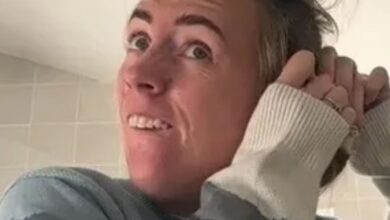I was mauled by a hippo – tourists watched as my lifeless body lay in its jaws
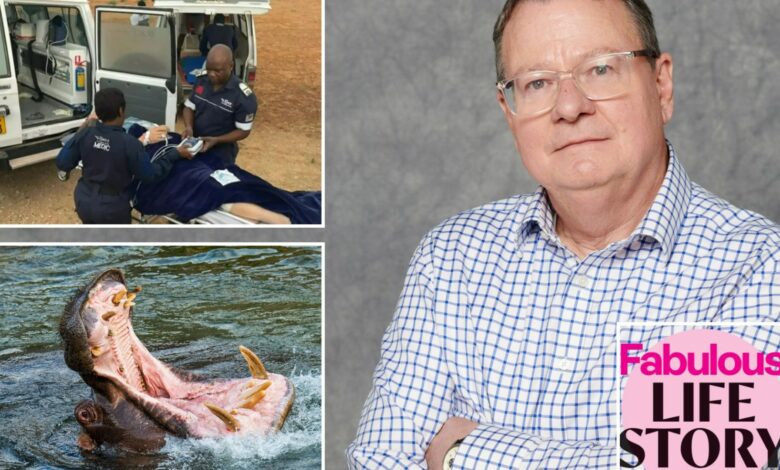

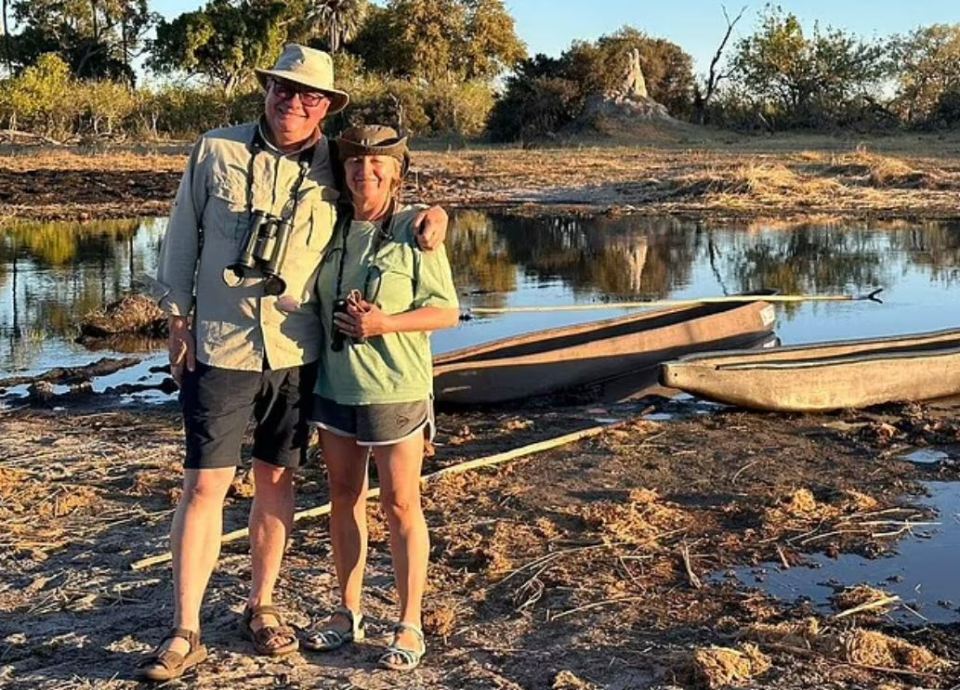
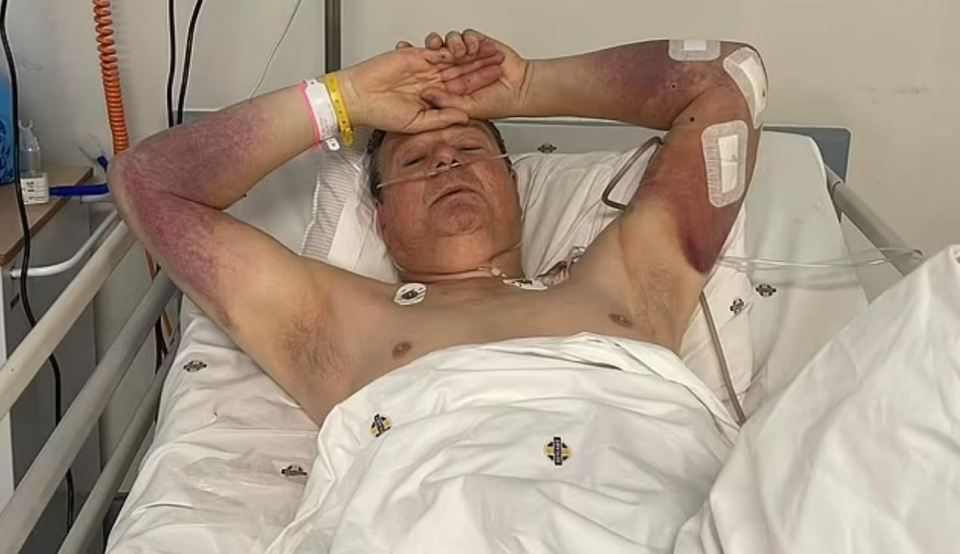
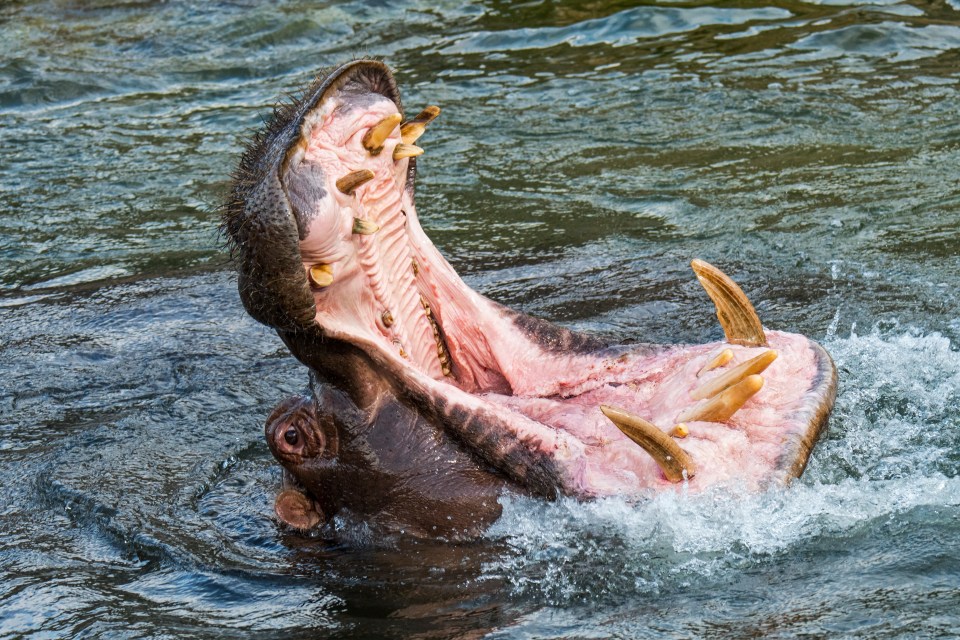

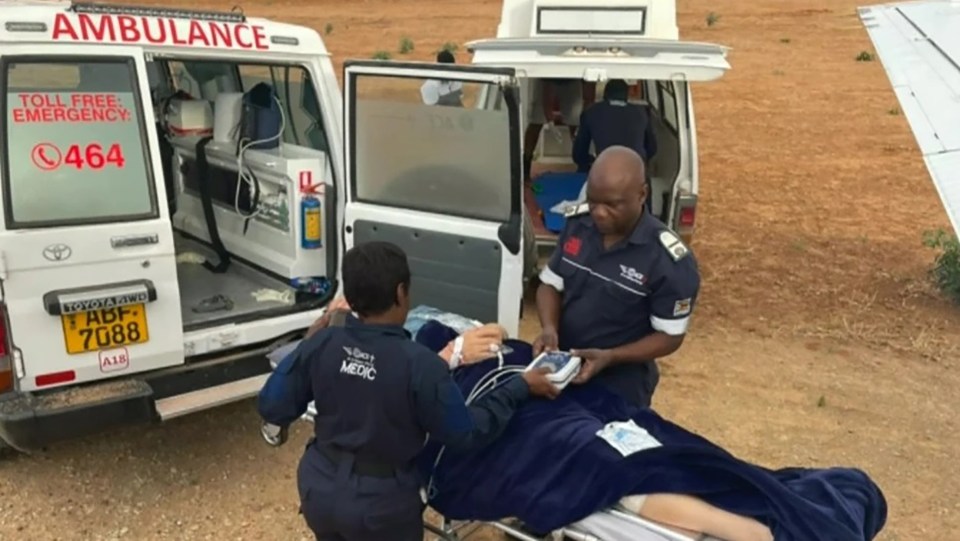
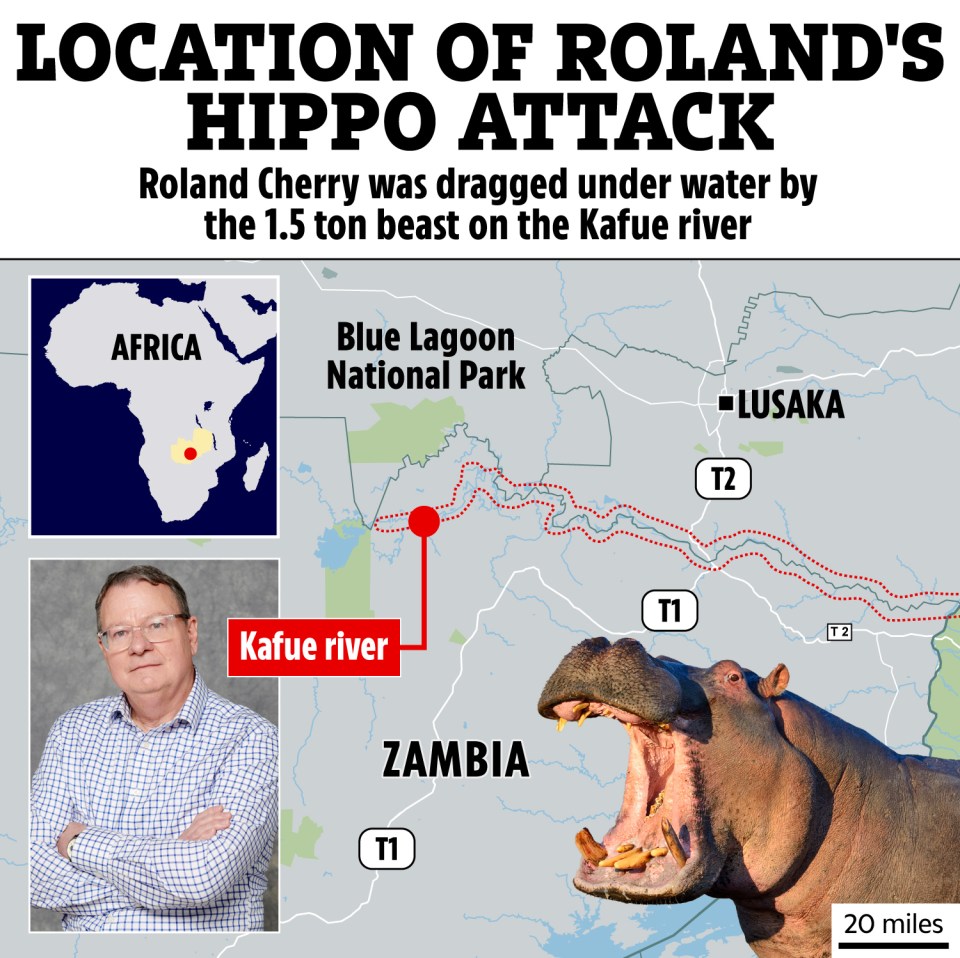

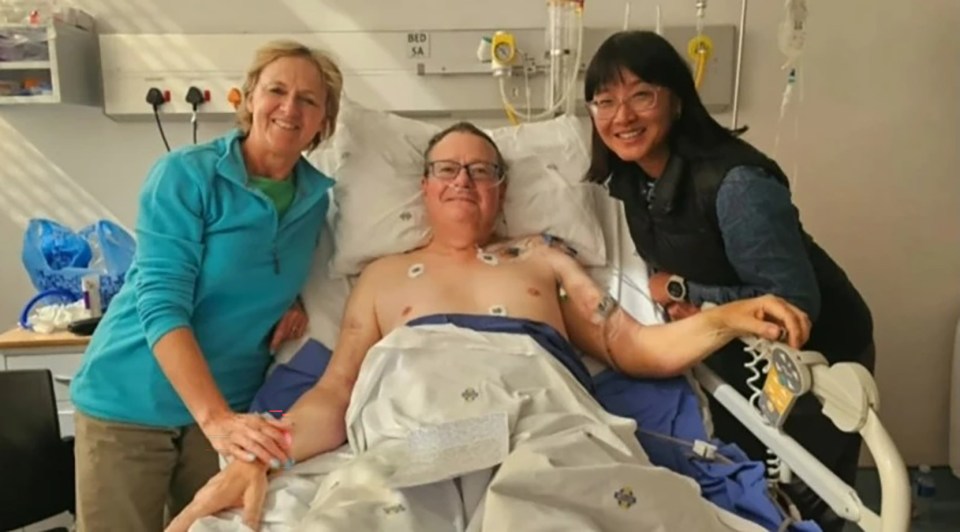
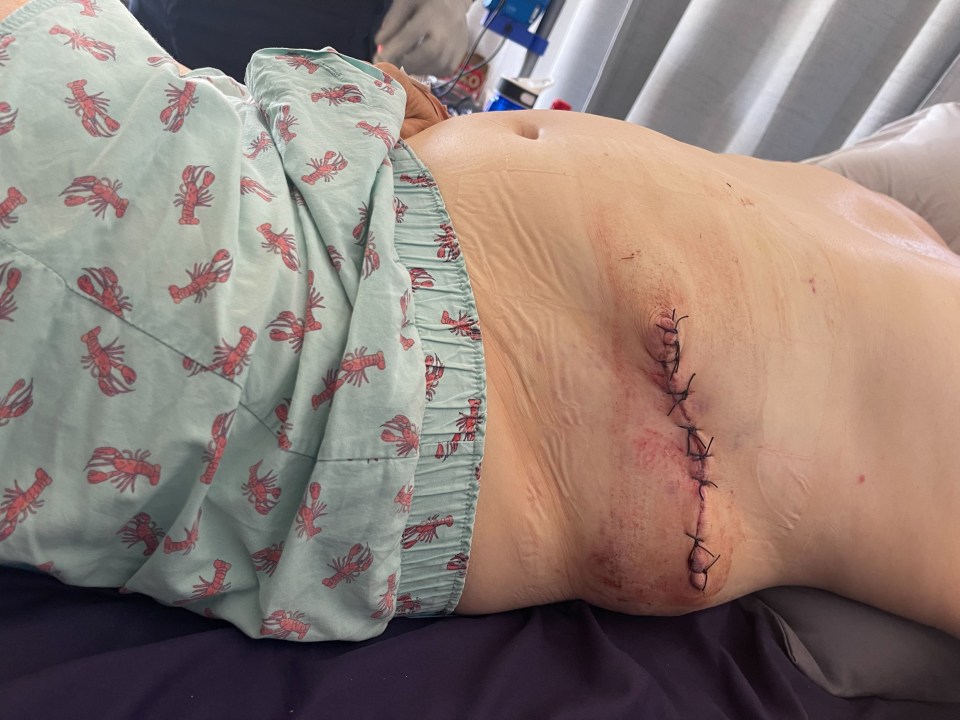
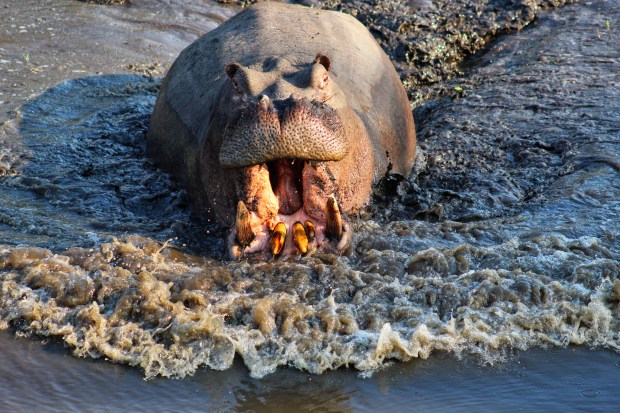

CLAMPED inside the mouth of a 1.5 ton hippopotamus, Roland Cherry could only watch as the light from the water’s surface disappeared from sight.
The dad of two was helpless and faced a grisly death as the enormous animal dragged him to the bottom of the river.
But in a remarkable stroke of luck, Roland managed to escape its clutches and the life jacket he was wearing lifted him back to the top.
However, his ordeal wasn’t over because just as Roland reached the surface the beast struck again, this time tossing him around like a rag doll into shallow water, an act which ultimately saved him.
With his legs covered in puncture wounds but knowing his life depended on it, the 63 year old then found the strength to ‘bumshuffle’ his way to safety on dry land.
Speaking exclusively as part of Life Stories, Fabulous’ new YouTube series that sees ordinary people share their extraordinary experiences, he says:
“I remember thinking ‘I don’t want to die, I’ve got so much more of my life to go.’ I’m incredibly lucky.
“The first thing medics told me was that they never treat hippo attack survivors for one reason only.
“They simply don’t survive.”
In July this year, Roland was on safari with his wife Shirley, 63, in Zambia when the beast flipped over their canoe and dragged the retired marketing director to the bottom of the Kafue river.
They were two weeks into a five-week trip of a lifetime and until then, the pair say they felt completely safe.
Roland, who lives in Tysoe, Warwickshire says:
“We never felt frightened because of course we were accompanied by professional guides on an organised safari, we put our trust in them entirely, we felt confident in them.
“We do tend to do quite a lot of travel and Shirley and I had been pining to go to Botswana for some time.
“We had been to Africa before as a family so it had a special place in our hearts. Our first two weeks were fantastic, we started out wild camping, out in the Okavango Delta itself and then saw lots of wildlife including lions, wild dogs, and leopards.”
Shirley adds: “But of course you have to remember that no matter how organised these trips might be, these are wild animals.”
It takes you a moment to actually process what’s going on. And you think, my God, I’m in the water. What’s in the water with me?
Roland’s wife Shirley
After visiting Victoria Falls on the second week, next on their itinerary was a kayak safari on the Kafui and the Zambezi River in Sazambia.
The group, which included six other tourists and two guides, planned to kayak down the Zambezi for 20km before camping on Elephant Island. They then planned to continue for another 10km the following day before being brought back by motorboat.
Considering themselves ‘reasonably experienced’ canoeists, the pair say they were ‘confident’ before starting their journey.
Shirley recalls: “We then had a briefing and we were told if you do end up in the river, you need to swim to the bank to avoid being targeted by a hippo but that would mean taking your chances with the crocodiles.
“We didn’t really pay much attention to it at the time because you never think anything untoward is going to happen to you.”
‘It was like a car crash’
However, the couple made it just 100 metres before disaster struck.
“We had left camp just five minutes before,” says Roland.
“The guide was ahead of us and said there was a hippo to right of us and that we should keep on the left.
“We did as we were told but within a minute there was an almighty bang, it was like a car crash.”
The enormous hippo had barged at the pair’s canoe, flipping them both into the water as well as the two boats behind them.
“I tried a one-armed breaststroke but the next thing I know I’m being grabbed from underneath and taken down to the bottom of the river
Roland Cherry
Recalling the terrifying moment, Shirley says: “It takes you a moment to actually process what’s going on. And you think, my God, I’m in the water. What’s in the water with me?
“I could hear people telling me to swim, and I was able to make it to the bank.”
The four other tourists also made it to the bank but Roland hadn’t been so lucky.
The hippo had him its sights and the battle with the beast was far from over.
“I realised I was in trouble, we now know that my shoulder dislocated in the impact,” he says.
“I tried a one-armed breaststroke but the next thing I know I’m being grabbed from underneath and taken down to the bottom of the river.”
After the life jacket propelled him back to the water’s surface, the hippo briefly released its grip on Roland but worse was to come.
“I took in a huge gulp of air and thereafter, I don’t have a recollection of what happened,” he says.
An Australian tourist called Amy who was in another canoe, later described how she watched in horror as the hippo came back for a second time.
“She had a very vivid account of me lying horizontal in a lifeless form in the hippo’s mouth,” Roland says.
“Seeing this, the guide actually assumed me dead.
“Then the hippo tossed me like a rag doll, but fortunately towards the bank.
“And that’s perhaps my biggest stroke of luck, that it threw me there rather into the middle of the river.”
Roland’s next recollection is sitting in shallow water taking in the extent of the injuries on his legs.
“There was a lot of bits of flesh sort of sticking out from my torn jeans and blood on both legs,” he explains.
“I could hear Shirley calling my name. And then friendly arms grabbed me and pulled me back to the shore.”
‘A second chance’
A rescue team lifted Roland into a motor boat and rushed him back to camp. Roland was then transported via minibus to the Mtendere Mission hospital in the local town of Chirundu.
Roland suffered a nine-inch (25cm) wound to his abdomen, plus a thigh injury and dislocated shoulder.
He had two bites to his right leg, one behind the knee and through the right thigh where the hippo’s tusk had pierced him up to the hip.
He also suffered a deep bite on his left thigh as well as his left arm.
Doctors made the life-saving decision to operate and clean Roland’s wounds, preventing fatal sepsis.
“They couldn’t really believe how fortunate I’d been,” he says.
“All of my wounds were superficial and I didn’t suffer any broken bones or organ damage.
“That first intervention from the Mission hospital was critical to my survival.
“They were also incredibly kind to us, they never once asked for our insurance details, they put my needs first.”
Shirley adds: “It did feel as though there was somebody looking down on us, a second chance at life for Roland.
“It gives you a keener appreciation of life.”
Roland was later transported by air ambulance to Mill Park Hospital in Johannesburg where he went through a further seven surgeries – including debridements, a medical procedure that removes dead, damaged, or infected tissue from a wound to help the healthy tissue heal.
He also had surgery on his shoulder.
He adds: “I have to say I didn’t feel particularly lucky at the time but I was told that had the wound on my leg been 4-5mm deeper they may not have been able to save either one or both of my legs.”
On July 16 this year, after three weeks in hospital, Roland was deemed fit enough to fly back to the UK.
HOW DANGEROUS ARE HIPPOS?

Forget about lions and tigers, it’s the pot belied African river dweller that’s nature’s deadliest land animal
Not only will a hippo crush bones, rip off limbs but it will swallow a person whole if given the chance.
Male hippos weigh in at around 2.5 tons or more and are fiercely protective of their territory, taking on crocodiles that cross their paths.
Their powerful jaws can easily snap a croc or a canoe in half and they are armed with razor sharp teeth.
Every year they kill around 500 people in Africa – more than lions, elephants, leopards, buffaloes and rhinos put together.
Despite their un-athletic exterior, the beasts can run faster than humans with fatal encounters common.
Hippos can reach speeds of 30mph and can easily outrun a human.
That’s around 3mph faster than Usain Bolt, the fastest humanm who hit 27mph when he broke the 100 metres world record.
One gamekeeper in Uganda was forced to run for his life after disturbing a hungry beast having its favourite meal of grass.
Pictures show the terrified man fleeing down the road at Murchison Falls National Park.
Recalling the feeling of relief to be back on UK soil, he says: “I remember the car taking us back home to leafy Warwickshire.
“I was overwhelmed by a sense of relief, it was lovely to be driven back through the English countryside back to our little village.
“That’s where my recovery began.”
Pain and trauma
Roland has since had regular hospital and physio appointments working on getting movement back into his legs and shoulder as well as overcoming the mental trauma.
Shirley says she was in awe of Roland’s resilience as he began his recovery.
“I was very, very proud of my husband,” she says.
“He never complained once all the time he was in hospital, which given what he went through was quite remarkable.”
Roland adds: “ I think it would have been very, very difficult to cope actually without the support of Shirley and the hospitals.
“The body reacts in different ways, not just physically, but mentally as well in terms of that level of trauma.
“The mind is quite clever because it tries to filter out some of that pain and trauma, but you do need support.”
You can’t hate wildlife but I do think they’ve got slight attitude issues, personally
Roland Cherry
Just four months after the attack, Roland is up and moving around, albeit with a lot of help from his physio – and despite what he went through, he hasn’t lost his sense of adventure.
“I don’t think we’ve lost our sense of wanderlust,” says Roland, who recently chose to retire.
“The world is a big place and it’s full of interesting places and people to visit and now that I’m retired I plan to take full advantage of that.
“If I was going to go back on the river, it would be in a larger boat.”
And as for the hippo itself, Roland doesn’t hold any feelings of resentment towards the breed.
“We were in her territory and she was just following her instinct,” he says.
“What we know now is that she was a mother cow protecting her calf.
“You can’t hate wildlife but I do think they’ve got slight attitude issues, personally.”
Roland and Shirley are now raising money to buy an ambulance for the Mtendere Mission Hospital at Chirundu, Zambia as thanks for saving his life.
Roland adds: “The hospital doesn’t currently have an ambulance and the presence of one would provide life saving care to so many in the community.”
You can donate to their JustGiving page here












